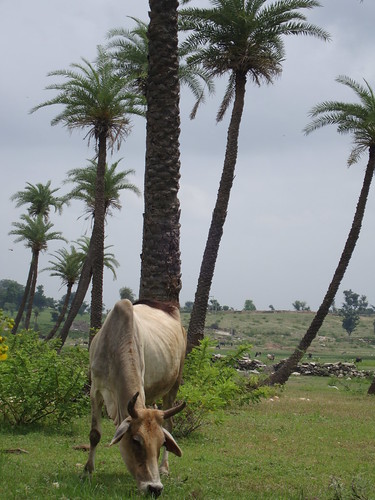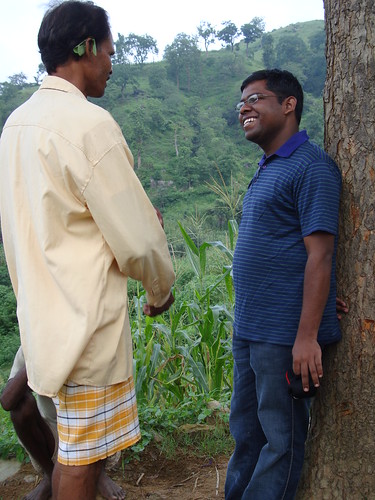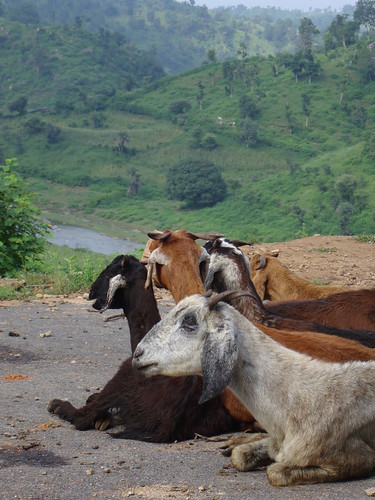Disused water pump in Bhimpur Village, 1.5 hours' drive south of Udaipur, in Rajasthan, India (photo ILRI / MacMIllan).
Over the last five years, poor monsoons have led to crippling droughts throughout Rajasthan, India's 'Land of the Kings', which includes a hilly and rugged southeastern region and the barren northwestern Thar Desert, which extends across the border into Pakistan.
This year's monsoon, which started mid-June, is wetter than average. By mid-September, the rains had transformed Rajasthan's hills into misty verdant pastures, on which still-thin cattle and buffaloes are now fattening. Rivers are full and running fast and lake waters are high with their floodgates bursting with water. Even the camels appear thankful for the greenery the monsoon has brought. Maize is ripening in the fields and everywhere you look people are cutting the tall green grass and other fodder and loading it and carrying it home—on their heads, on their bullock carts, on the backs of their motorcycles—to feed their animals. They will dry and store the excess fodder for use when the land turns brown again.
Scientists at the International Livestock Research Institute (ILRI) are working with others to conduct three case studies in South Asia on the use of stover and other crop 'wastes' for feeding ruminant farm animals. The residues of grain crops after harvesting are vital to animal husbandry here, where such residues typically make up more than half the feed for cattle, buffaloes, camels, goats and sheep.
The case studies are being conducted in three contrasting sites: the extensive and normally dry rangelands of Rajasthan, the modern farming sector of Haryana (part of India's breadbasket), and in the intensely cultivated fields of Bangladesh.
Braja Swain, the project associate doing all the fieldwork and analyses for this project, says that even this year's good maize harvest will feed many families only for a few months, after which they will have to buy grain using money they get from selling some animals or from family members who have migrated away to find jobs.
This project is funded by the Systemwide Livestock Programme of the Consultative Group on International Agricultural Research and led by the Maize and Wheat Improvement Centre. ILRI's Swain is studying for a doctoral degree in economics at the Centre for Development Studies at Jawaharlal Nehru University, in New Delhi.





